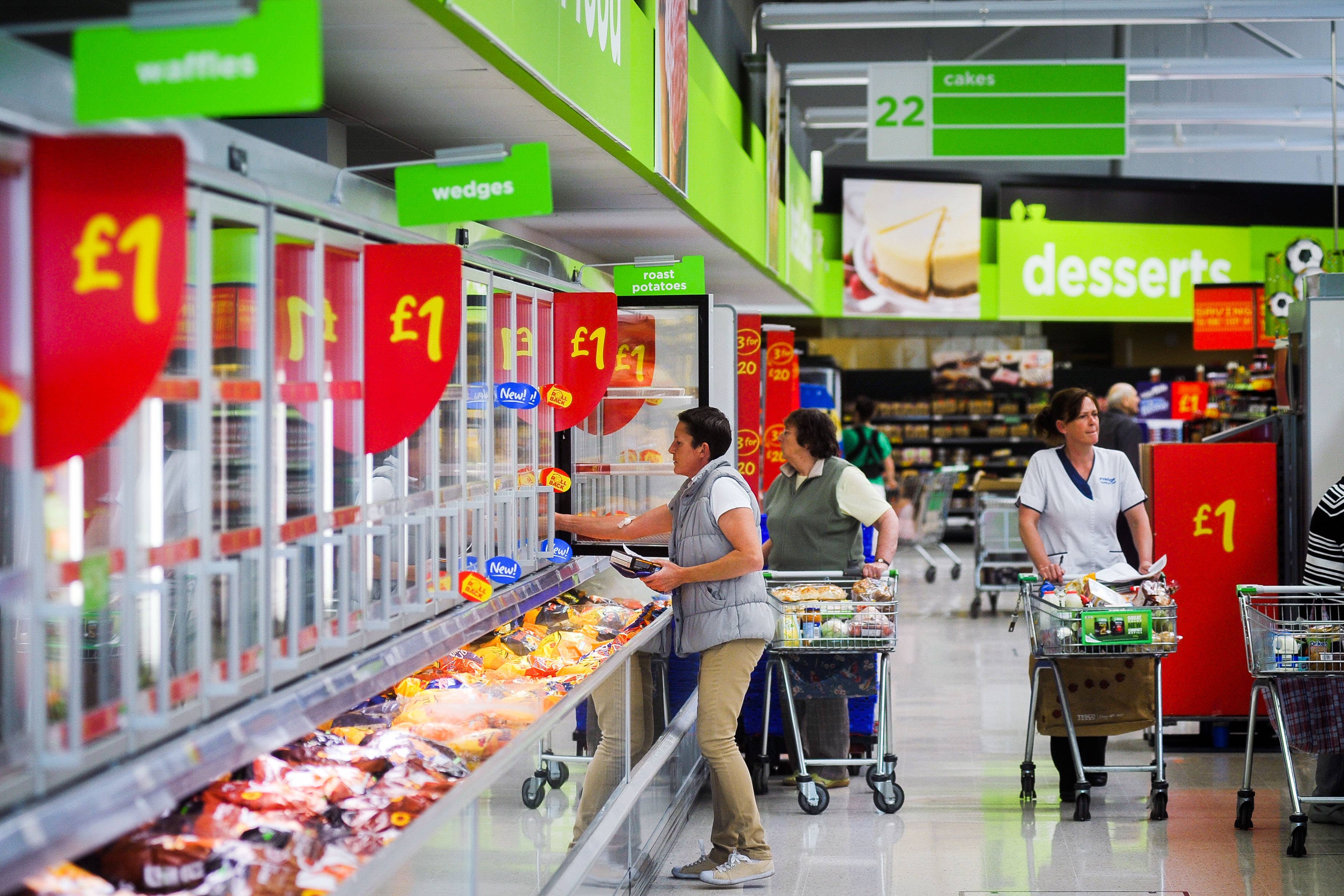Shoppers head to frozen aisle to cool impact of ‘sizzling hot’ inflation
The more budget-friendly options also have a longer shelf life in the freezer

Shoppers are opting for frozen meat and meals such as pizza and chips as inflation continues to add hundreds of pounds to household grocery bills, research shows.
Frozen food sales were up in the three months to mid-March, according to figures from retail analysts Kantar, even as total grocery sales fell over the same period.
It comes as supermarket inflation hit 17.5 per cent in the month to 19 March, reaching another record high. It means more than £800 could be added to annual bills for the average household provided they do not change their spending habits.
Frozen poultry such as chicken and game meats saw the biggest rises, Kantar said, as well as frozen prepared foods including ready meals, pizzas, chips and pies.
Consumers have been taking action by shopping around multiple supermarkets to hunt for bargains, with households going to the shops just over four times a week in March – more than at any point since the start of the pandemic, other than Christmas.
Experts also suggested that people are opting for frozen food over fresh food because it is longer-lasting and less likely to lead to waste.
Myron Jobson, senior personal finance analyst at Interactive Investor, said: “Shoppers are increasingly opting to buy frozen instead of fresh as part of efforts to quell the devastating impact of sizzling hot inflation on their finances.
“Choosing frozen produce also allows you to use as much or as little food without the rest of the pack going past its best, which reduces wastage and saves money.
“Baskets are getting smaller and more of us are ditching premium brands for cheaper alternatives, while many are reducing spend on nice-to-have’ items.”
Meanwhile, the executive chairman of frozen food supermarket Iceland Foods, Richard Walker, said it is “no surprise” that consumers were heading for the value-for-money frozen aisles. “More shoppers are waking up to this more budget-friendly option during these challenging economic times,” he said.
Meanwhile, Aldi and Lidl have followed rival supermarkets Sainsbury’s and Tesco in slashing the price of milk. The budget retailers announced on Friday that they are cutting the price of their four-pint own brand bottles by 10p from £1.65 to £1.55.
The change follows a similar announcement by supermarket Sainsbury’s on Thursday, with Tesco being the first to cut its prices on Wednesday.
A spokesperson for Lidl said that its latest price cut would not impact farmers. The decision was quickly followed by Asda announcing its own price cut later on Friday.
But consumer group Which? said that supermarkets should be doing “a lot more to ensure healthy, nutritious food is more widely available”. Head of food policy Sue Davies said: “Any price reduction is good news for consumers, but 5p off a pint of milk won’t make a huge difference when it comes to year-on-year food price inflation, which is almost 25 per cent at some supermarkets, according to our research.
“This step shows that pressures are easing but supermarkets should be doing a lot more to ensure healthy, nutritious food is more widely available, especially in those areas most in need and to make sure pricing is clearer, more transparent and more consistent, so consumers can easily compare prices in-store and with other supermarkets.”






Join our commenting forum
Join thought-provoking conversations, follow other Independent readers and see their replies
Comments